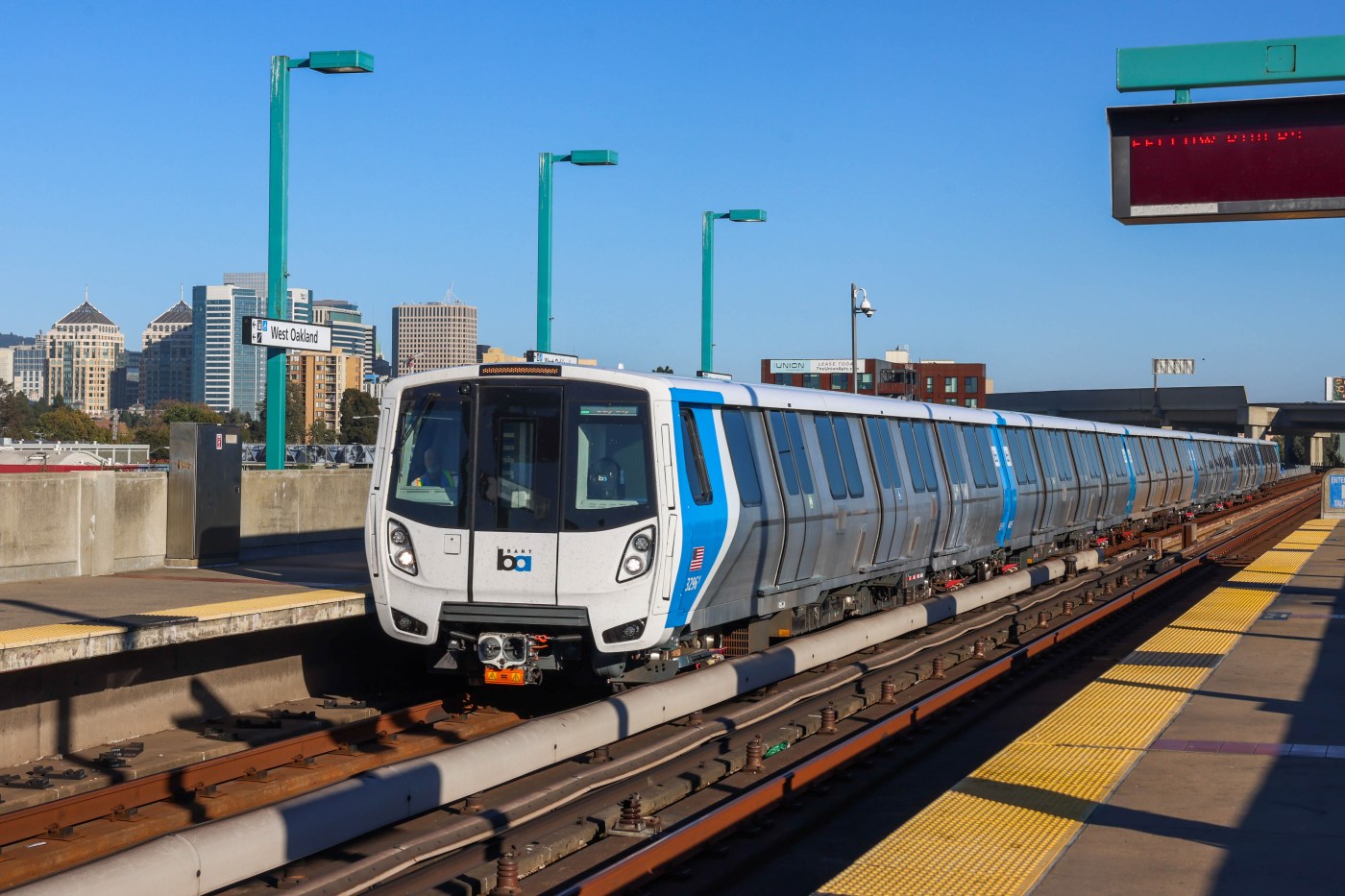
As the Santa Clara Valley Transportation Authority works to close a roughly $1 billion funding gap for the BART extension project, BART is accusing VTA of violating a 24-year-old agreement between the transit agencies.
The allegations, along with other concerns about transparency, has prompted one VTA board member to call for a change in leadership on the project.
Shane Edwards, BART’s assistant general manager of operations, told VTA General Manager Carolyn Gonot that the transit agency is “gravely concerned with VTA’s failure to provide prior notice” of two recent developments with the project, according to an Aug. 15 letter obtained by this news organization.
Edwards alleged that VTA failed to alert BART before sending out a press release on Aug. 11 about a cost analysis of an alternative tunnel design for the six-mile, four station project, which will run from the Berryessa Transit Center in North San Jose, through downtown and to Santa Clara. Edwards also said the agency was concerned about “the lack of advance discussion on the significantly scaled-down version” of the rail yard that was presented at an Aug. 14 meeting.
“Both actions violate established protocols, undermine the trust and coordination that have guided this partnership and represent serious breaches of process,” Edwards wrote.
In 2001, as transit officials eyed the rail line’s expansion into Santa Clara County, the two agencies struck an agreement — VTA would take the lead and assume full financial responsibility, while BART would bring its expertise, as it had already built a 95-mile, 39-station regional system. The agreement also required VTA to alert BART of any changes to the scope or funding of the project and get its approval.
But it appears that isn’t happening, according to Edwards’ letter.
At an Aug. 14 VTA oversight committee meeting, project officials unveiled a scaled down version of the Newhall Yard — a key site for the maintenance and storage of BART cars that would prevent the trains from returning to the East Bay each night.
As part of the agency’s broader cost savings effort, the new proposal would reduce the train storage capacity and defer the construction of the maintenance buildings. Erica Roecks, the deputy director of external affairs, said at the meeting that VTA has been in “ongoing conversations with BART” about the issue.
But Edwards said in his letter the following day that there was no “meaningful prior discussion on concepts of yard redesign” and that it “carries direct and lasting operational consequences for BART’s ability to safely and efficiently operate the expanded system.”
“Such omissions hinder BART’s ability to fulfill its responsibilities to the public, damage stakeholder confidence, and raise fundamental concerns about VTA’s adherence to its commitments,” he wrote. “Given the scale, complexity, and visibility of this project, these failures are not minor oversights, they are unacceptable breaches of trust.”
In an Aug. 17 email obtained by this news organization, Tom Maguire — VTA’s chief megaprojects delivery officer — told committee members that the letter’s language was “more aggressive than necessary.” He also said that the “presentation was shown prematurely.”
“It needed more vetting and discussion with BART before being shown publicly,” he wrote. “We still believe there is a collaborative path forward to agree on a final Newhall Yard layout.”
Santa Clara City Councilmember Suds Jain, who serves on VTA’s Board of Directors, told the Bay Area News Group that he doesn’t think he can trust the project team in light of BART’S latest allegations.
“At this point, I would like to see a change of leadership,” he said. “I don’t think this leadership team is capable of doing this project and I think if they do it they’re just going to make a mess of it.”
A VTA spokesperson said in a statement that the agency has a “higher level of transparency than any other transit megaproject in the U.S.,” noting the oversight committee and 80-page reports that it releases about the project on a monthly basis.
“We remain deeply committed to maintaining a strong partnership with BART and to delivering a project that upholds the highest standards of safety, while exercising prudent fiscal stewardship,” the spokesperson said. “We are addressing BART’s comments and will ensure that the final design of the Newhall Yard allows BART to operate efficiently and maintain a level of service consistent with the existing BART system.”
BART spokesperson Chris Filippi said in an email that they “have been in communication with VTA officials about improving communication going forward.”
An independent expert hired by VTA last year to come up with cost savings for the $12.75 billion project also has raised concerns about transparency in recent weeks. Nasri Munfah, a principal with the engineering consulting firm Gall Zeidler, said at the Aug. 14 committee meeting that he hasn’t had access to certain information to perform independent cost reviews.
Munfah and VTA also recently disagreed on a report released earlier this month in which the transit agency said that switching the tunnel design could add $600 million to the project’s cost. In a memo, Munfah criticized the cost estimates, calling them “potentially overstated” and said some of the contract award dates and drilling estimates were “excessive.”
A VTA spokespserson said they take “seriously any concerns about communication” and that “requests that VTA has received from Gall Zeidler have been responded to, and information has been provided within a timely manner.”